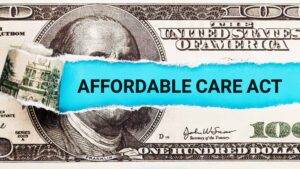
A family-friendly New Orleans CPE conference makes it easy to earn credits in the morning
4 min read
VALENTINE’S DAY FLASH SALE – Shop Tax Updates, OBBBA series and Save Now, Choose Later

The gig economy continues to expand rapidly, with 64 million Americans now participating in on-demand work through digital platforms. As an Enrolled Agent, you are uniquely positioned to serve this growing demographic. Gig workers need specialized tax guidance that aligns with your expertise in taxation and representation. This guide will outline the challenges and actionable solutions for working with gig economy clients as an Enrolled Agent.
Gig workers face a significantly higher risk of IRS scrutiny due to information reporting gaps, income matching discrepancies, and Schedule C filing complexities. When they receive tax notices or audit letters, many panic or attempt to handle the situation themselves, often making critical errors in the process.
Action Steps:
The IRS defines gig economy income as taxable regardless of whether it’s reported on information returns or how it’s paid. Gig platforms have widely varying approaches to income reporting. Some issue 1099-Ks only after reaching high thresholds, others use 1099-NECs, and some provide no tax forms at all.
Action Steps:

Most gig workers come from traditional employment backgrounds where FICA taxes were automatically withheld. Owing the full self-employment tax amount can catches clients off-guard, leading to payment difficulties, penalties, and potential non-compliance.
Action Steps:
Quarterly estimated tax payments can be an adjustment for gig economy clients. The irregular income patterns typical of gig work make calculating these payments particularly difficult. Many gig workers either ignore the requirement completely, underpay significantly, or overpay to avoid penalties, creating cash flow problems.
Action Steps:
Gig workers operate in diverse fields—from rideshare and food delivery to creative services and home rentals—each with unique allowable deductions. Without proper guidance, they often miss significant deductions or claim inappropriate expenses. The blending of personal and business activities further complicates proper expense tracking, with many gig workers lacking systematic approaches to documentation that would withstand IRS scrutiny.
Action Steps:
Vehicle expenses represent the largest deduction category for many gig workers, particularly those in transportation and delivery services. The choice between standard mileage rate and actual expenses has significant tax implications, with the wrong choice potentially costing thousands in missed deductions.
Action Steps:
The pandemic accelerated remote work trends, leading many gig workers to claim home office deductions. However, the “exclusive use” and “regular basis” requirements trip up many taxpayers who use spaces for multiple purposes. The documentation needed to support these deductions is often lacking, and many gig workers don’t understand the difference between the regular and simplified methods.
Action Steps:
The diversified nature of gig work means many clients operate multiple business activities simultaneously—perhaps driving for Uber, delivering for DoorDash, and selling on Etsy. This raises complex questions about when to file separate Schedule Cs versus consolidating activities, how to allocate shared expenses, and whether different business structures might be appropriate.
Action Steps:
As an Enrolled Agent, you possess specialized knowledge and representation authority that perfectly aligns with the needs of gig economy workers. Your ability to provide authoritative tax guidance and represent clients before the IRS offers tremendous value to this growing segment of the workforce. By addressing the challenges presented by gig economy workers, you will not only help clients achieve tax compliance but will also build a thriving practice niche that leverages your unique credentials and expertise.






Subscribe to our news, analysis, and updates to receive 10% off your first purchase of an on-demand digital CPE course.